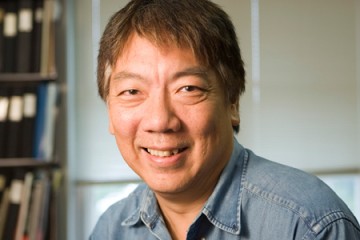Steven Yantis, a brain scientist known for his pioneering studies on visual attention and a member of the Johns Hopkins faculty for nearly three decades, died Friday of cancer. He was 58.

Image caption: Steve Yantis
Yantis was a professor in the Department of Psychological and Brain Sciences at the university's Krieger School of Arts and Sciences. He also held appointments in the Department of Cognitive Science, the Zanvyl Krieger Mind/Brain Institute, and the Solomon Snyder Department of Neuroscience at the School of Medicine.
"Steve Yantis was the bedrock of the department, at once gentle and strong," said Susan Courtney, chair of Psychological and Brain Sciences, "He was always the voice of reason in any debate, because he knew how to identify the most important elements, in a scientific data set, in a faculty candidate, or in life."
Yantis' work focused on visual selective attention and cognitive control, specifically the neural mechanisms of attention and perception and the use of functional magnetic resonance imaging to supplement behavioral methods. From this line of research, he is perhaps best known for his work on the neural mechanisms involved in switching attention from one task or one type of stimulus to another.
He published more than 100 scientific papers—"many of which were marked by strikingly clever and elegant experimental designs," Krieger School Dean Katherine Newman noted in an email message to faculty and staff this morning. He also edited two books on perception and wrote a textbook, Sensation and Perception, which was published this year.
Yantis was recognized with the Troland Research Award from the National Academy of Sciences and the Distinguished Scientific Award for an Early Career Contribution to Psychology by the American Psychology Association.
Yantis joined the Johns Hopkins faculty in 1986 after completing a postdoctoral fellowship at Stanford. He received a BS in psychology from the University of Washington in 1978 and a PhD in experimental psychology from the University of Michigan in 1985.
He is survived by his wife, Kathleen, their daughters Caitlyn and Alyson, his stepson Ken, and his son-in-law, Jason.
Plans for a university memorial will be announced in the near future.
Posted in University News
Tagged obituaries








